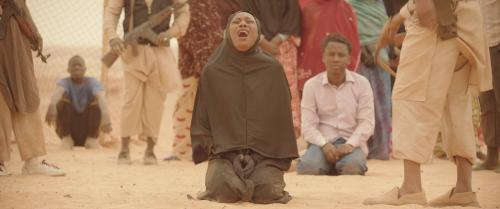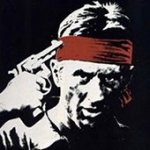Ko o ye ne faso ye
n balimalu Tonbuktu ye ne faso ye
mmm ko o ye ne faso ye
sinjilu , Tonbuktu ye ne faso ye
ko denmisɛnnu bɛ kasi la Ala
badenya, badenya dugu ye Tonbuktu ye
sinjiya, sinjiya dugu ye Maliba ye
yankalu yan ye ne faso ye
oo bo oo boo ooo
Ko o ye ne faso ye
n balimalu Maliba ye ne faso ye
aw bɛ kasi la mun na
denmisɛnnu bɛ ka si la mun na
aw bɛ kasi la mun na
kamalennu bɛ kasi la
Maliba — don dɔ be se —
Ko yan ye ne faso ye
n sinjilu Tonbuktu ye ne faso ye
ko siniɲɛsigi jɔrɔ de bɛ an na
n ko denmisɛnnu bɛ kasi la yen
denmisɛnnu bɛ kasi la yen mun na
aw ye hami na mun na yen
aw kana kasi la Ala
Maliba don dɔ - bɛ se -
Aw bɛ - aw bɛ kasi la yen mun na yen
N ko anw bɛ kasi la eee mun na n ba eee Ala
n ko denmisɛnnu bɛ kasi la yen Ala
Maliba n ko don dɔ bɛ se.
n balimalu Tonbuktu ye ne faso ye
mmm ko o ye ne faso ye
sinjilu , Tonbuktu ye ne faso ye
ko denmisɛnnu bɛ kasi la Ala
badenya, badenya dugu ye Tonbuktu ye
sinjiya, sinjiya dugu ye Maliba ye
yankalu yan ye ne faso ye
oo bo oo boo ooo
Ko o ye ne faso ye
n balimalu Maliba ye ne faso ye
aw bɛ kasi la mun na
denmisɛnnu bɛ ka si la mun na
aw bɛ kasi la mun na
kamalennu bɛ kasi la
Maliba — don dɔ be se —
Ko yan ye ne faso ye
n sinjilu Tonbuktu ye ne faso ye
ko siniɲɛsigi jɔrɔ de bɛ an na
n ko denmisɛnnu bɛ kasi la yen
denmisɛnnu bɛ kasi la yen mun na
aw ye hami na mun na yen
aw kana kasi la Ala
Maliba don dɔ - bɛ se -
Aw bɛ - aw bɛ kasi la yen mun na yen
N ko anw bɛ kasi la eee mun na n ba eee Ala
n ko denmisɛnnu bɛ kasi la yen Ala
Maliba n ko don dɔ bɛ se.
envoyé par Krzysiek W2 [Wrona + Wenturi] - 26/12/2016 - 02:38
Langue: français
Traduction française, avec notes
tirée de Mali Pense
Traduzione francese, con note, tratta da Mali Pense
French translation, with notes, from Mali Pense

tirée de Mali Pense
Traduzione francese, con note, tratta da Mali Pense
French translation, with notes, from Mali Pense

TOMBOUCTOU, MON PAYS [1]
C'est mon pays [2]
mes amis, Tombouctou c'est mon pays [3]
c'est mon pays,
mès frères et sœurs [4], Tombouctou c'est mon pays
les enfants sont en pleurs, Allah
mes frères et sœurs [5], notre terre c'est Tombouctou
mes frères et sœurs, notre terre c'est le grand Mali
gens d'ici, c'est ici mon pays
oo bo oo boo oo
C'est mon pays,
mes frères et sœurs, le grand Mali c'est mon pays
vous êtes en pleurs, pourquoi?
Les enfants sont en pleurs, pourquoi?
Vous êtes en pleurs, pourquoi?
Les jeunes gens sont en pleurs,
le grand Mali un jour vaincra
C'est ici mon pays,
mes frères et sœurs, Tombouctou c'est mon pays
l'inquiétude de l'avenir est en nous,
les enfants sont en pleurs là-bas, pourquoi?
Vous êtes dans les soucis, pourquoi là-bas?
Ne soyez pas en pleurs, Allah,
le grand Mali un jour vaincra
Vous êtes, vous êtes en pleurs là bas, pourquoi là bas?
Vous êtes en pleurs là-bas, pourquoi, Allah?
Les enfants sont en pleurs là-bas, Allah
le grand Mali, je le dis, un jour vaincra.
C'est mon pays [2]
mes amis, Tombouctou c'est mon pays [3]
c'est mon pays,
mès frères et sœurs [4], Tombouctou c'est mon pays
les enfants sont en pleurs, Allah
mes frères et sœurs [5], notre terre c'est Tombouctou
mes frères et sœurs, notre terre c'est le grand Mali
gens d'ici, c'est ici mon pays
oo bo oo boo oo
C'est mon pays,
mes frères et sœurs, le grand Mali c'est mon pays
vous êtes en pleurs, pourquoi?
Les enfants sont en pleurs, pourquoi?
Vous êtes en pleurs, pourquoi?
Les jeunes gens sont en pleurs,
le grand Mali un jour vaincra
C'est ici mon pays,
mes frères et sœurs, Tombouctou c'est mon pays
l'inquiétude de l'avenir est en nous,
les enfants sont en pleurs là-bas, pourquoi?
Vous êtes dans les soucis, pourquoi là-bas?
Ne soyez pas en pleurs, Allah,
le grand Mali un jour vaincra
Vous êtes, vous êtes en pleurs là bas, pourquoi là bas?
Vous êtes en pleurs là-bas, pourquoi, Allah?
Les enfants sont en pleurs là-bas, Allah
le grand Mali, je le dis, un jour vaincra.
[1] en bambara : Tumutu faso ; Timbuktu est le nom en Anglais, Tombouctou en Français
[2] plus exactement la patrie : (père-maison), donc la maison des pères, "la mère patrie" !
[3] balima en bambara est une notion de parenté désignant le frère ou la sœur, ou toute personne que l’on considère comme un frère ou une sœur ; terme affectif à l’adresse des lecteurs, des auditeurs...
[4] Il s’agit là des frères et sœur de même mère : exactement du même lait maternel (nourris au même sein).
[5] Il s’agit des enfants de la même mère (mère-enfant).
[2] plus exactement la patrie : (père-maison), donc la maison des pères, "la mère patrie" !
[3] balima en bambara est une notion de parenté désignant le frère ou la sœur, ou toute personne que l’on considère comme un frère ou une sœur ; terme affectif à l’adresse des lecteurs, des auditeurs...
[4] Il s’agit là des frères et sœur de même mère : exactement du même lait maternel (nourris au même sein).
[5] Il s’agit des enfants de la même mère (mère-enfant).
envoyé par Riccardo Venturi - 26/12/2016 - 16:08
Langue: anglais
English Translation by Riccardo Venturi
[based upon the French translation
December 26, 2016 04:47 pm
[based upon the French translation
December 26, 2016 04:47 pm
TIMBUKTU, MY HOMELAND
This is my homeland,
my friends, Timbuktu is my homeland
this is my homeland,
my brothers and sisters, Timbuktu is my homeland
the children are crying, Allah,
my brothers and sisters, Timbuktu is our homeland
my brothers and sisters, great Mali is my homeland
people from here, my homeland is here
oo bo oo boo oo
This is my homeland,
my brothers and sisters, great Mali is my homeland
you are crying, why?
The children are crying, why?
You are crying, why?
The young people are crying, why?
Great Mali is bound to win
My homeland is here,
my brothers and sisters, Timbuktu is my homeland
we are afraid of the future,
the children down there are crying, why?
You are so much worried, why?
Don't cry, Allah,
great Mali is bound to win
You are crying, you are crying down there, why?
You are crying down there, why, Allah?
The children down there are crying, why, Allah?
Great Mali, I tell you, is bound to win.
This is my homeland,
my friends, Timbuktu is my homeland
this is my homeland,
my brothers and sisters, Timbuktu is my homeland
the children are crying, Allah,
my brothers and sisters, Timbuktu is our homeland
my brothers and sisters, great Mali is my homeland
people from here, my homeland is here
oo bo oo boo oo
This is my homeland,
my brothers and sisters, great Mali is my homeland
you are crying, why?
The children are crying, why?
You are crying, why?
The young people are crying, why?
Great Mali is bound to win
My homeland is here,
my brothers and sisters, Timbuktu is my homeland
we are afraid of the future,
the children down there are crying, why?
You are so much worried, why?
Don't cry, Allah,
great Mali is bound to win
You are crying, you are crying down there, why?
You are crying down there, why, Allah?
The children down there are crying, why, Allah?
Great Mali, I tell you, is bound to win.
×
![]()








Written by Fatoumata Diawara
Scritta da Fatoumata Diawara
Écrite par Fatoumata Diawara
Composed by Fatoumata Diawara and Amine Bouhafa
Composta da Fatoumata Diawara e Amine Bouhafa
Composée par Fatoumata Diawara et Amine Bouhafa
Based on the Timbuktu main theme by Amine Bouhafa
Arranged & produced by Amine Bouhafa
Basata sul 'Timbuktu main theme' di Amine Bouhafa
Arrangiata e prodotta da Amine Bouhafa
Basée sur le 'Timbuktu main theme' d'Amine Bouhafa
Arrangée et produite par Amine Bouhafa
A film directed by Abderrahmane Sissako
P&C2014 LES FILMS DU WORSO / DUNE VISION
The city of Timbuktu is under the occupation of extremist Islamists bearing a jihadist black flag. Kidane is a cattle herder who lives outside of the city. One day, one of his cows accidentally damages the net of a fisherman. The enraged fisherman kills the cow. Kidane confronts the fisherman and accidentally shoots him dead. The jihadists arrest Kidane and, per sharia law, demand a blood money payment of 40 cattle to the fisherman's family. As Kidane has only seven cattle, he is sentenced to death. His wife shows up at his execution with a pistol, and as they run to each other the husband attempts to stop her. The executioners gun them both down. Throughout the film there are subsidiary scenes showing the reaction of the population to the jihadists' rule, which are portrayed as absurd. A female fishmonger must wear gloves even when selling fish. Music is banned; a woman is sentenced to 40 lashes for singing, and 40 lashes for being in the same room as a man not of her family. A couple are buried up to their necks in sand and stoned to death for adultery. Young men play football with an imaginary ball as sports are banned. A local imam tries to curb the jihadists' excesses with sermons. The failure of the occupiers to live up to their own rules is hinted at, for instance when one of them is seen smoking a cigarette. Another group of jihadists from France spend their days talking about their favorite football teams. Characters speak in Tamasheq, Bambara, Arabic, French, and on a few occasions English. The mobile phone is an important means of communication.